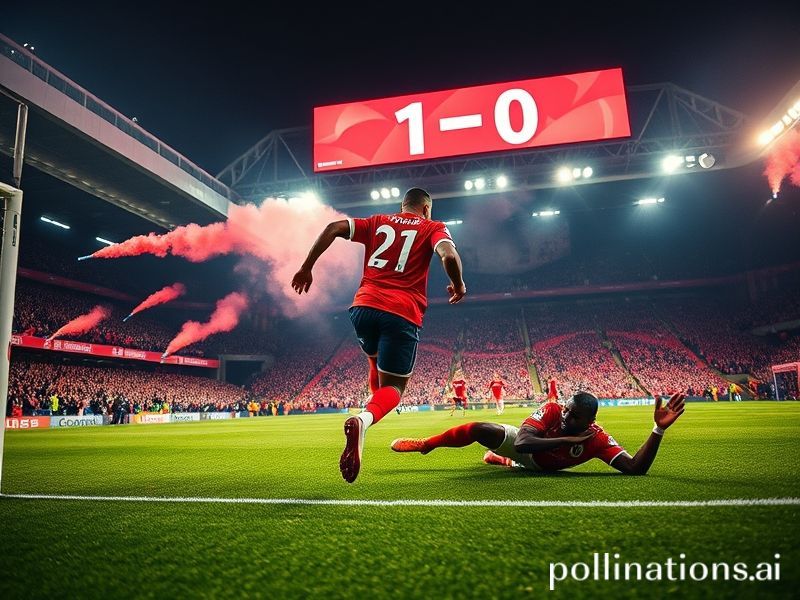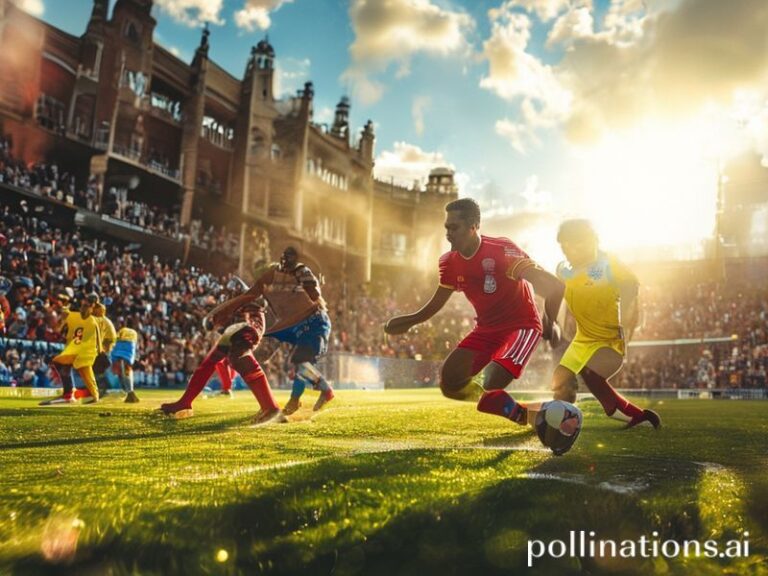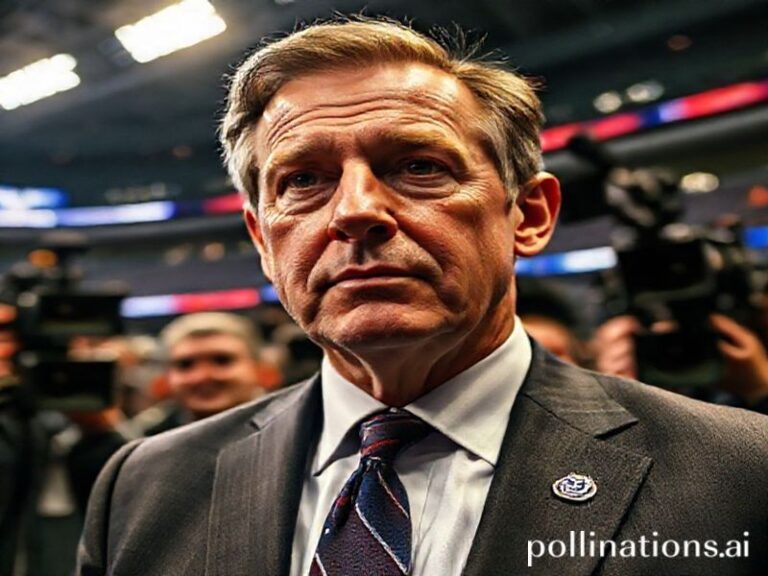Global Schadenfreude Derby: Man Utd v Leicester as Late-Stage Capitalism in 90 Minutes
MANCHESTER — Somewhere between the 17th replay of Marcus Rashford’s missed sitter and the 23rd VAR freeze-frame of a Leicester toenail in offside purgatory, the planet remembered that football is still the most efficient way to export existential dread. Manchester United versus Leicester City at Old Trafford wasn’t merely a mid-table squabble over the right to lose to Aston Villa next month; it was a live demonstration of late-capitalist entropy dressed up in polyester.
From Lagos to Lima, insomniacs tuned in to watch two proud institutions attempt to remember what they were supposed to be doing. United, once the global synonym for swagger and treble-winning audacity, now resembles a hedge fund that accidentally bought a football team. Leicester, the romantic 5000-to-1 miracle that briefly made the universe feel fair, returned to their historic role as plucky spoiler—except the universe has since clarified that fairness was a bug, not a feature.
The geopolitical overtones were hard to miss. Saudi sovereign wealth is busy snapping up Newcastle; Qatar already has PSG; the Glazers, meanwhile, continue to treat Old Trafford like a Florida timeshare with a leaky roof. Each misplaced Casemiro pass felt like another brick falling from post-Brexit Britain’s self-image. And when Kelechi Iheanacho slotted the equalizer, you could almost hear the clink of soft-power coins sliding across a Bloomberg terminal in Riyadh.
Asian betting syndicates reportedly moved over $200 million on the outcome, which is roughly the GDP of the island nation of Tuvalu. African viewers on cracked streams watched their data allowances evaporate with every slow-motion replay, a reminder that digital colonialism now charges by the megabyte. In the United States, NBC’s broadcast team gamely translated “gaffer” and “nil-nil” for viewers trained to expect touchdowns every thirty seconds, proving that cultural imperialism is at least a two-way street.
Inside the stadium, the Stretford End unfurled a banner reading “We Want Our Club Back,” a sentiment as touching as it is mathematically incoherent. The club was sold decades ago; the fans just received the receipt. Meanwhile, Leicester supporters belted out “Championes” in ironic appreciation of their 2016 title, the way one hums a lullaby at a funeral. Every misplaced pass echoed like a pension fund collapsing in real time.
The match finished 2-2, a scoreline that satisfied nobody and therefore perfectly encapsulated the current era. United remain sixth, a position that translates to Europa League purgatory—just competitive enough to keep the brand humming, not relevant enough to matter. Leicester sit 16th, two points above the drop zone, a reminder that fairy tales have sequels, and the sequel is usually a tax audit.
Social media instantly split into two camps: tactical analysts drawing arrows on freeze-frames like Pentagon war planners, and meme accounts comparing Victor Lindelöf to a confused IKEA shelf. Somewhere in the metaverse, a non-fungible ticket stub for this match is already trading at 0.03 Ethereum, which is either a bargain or daylight robbery, depending on your faith in human progress.
As the final whistle blew, commentators reached for grand narratives: redemption arcs, managerial hot seats, Super League boogeymen. But the deeper story is simpler. Twenty-two millionaires chased a ball while billions watched, hoping the spectacle would distract them from melting ice caps and rising inflation. For ninety minutes plus stoppage time, it sort of did. Then the floodlights dimmed, the pundits signed off, and the planet spun back toward Tuesday’s existential cliffhanger.
In that sense, Man United versus Leicester wasn’t just football—it was a perfectly choreographed metaphor for 2024: equal parts nostalgia and nausea, played out on a global stage to an audience praying the Wi-Fi doesn’t cut out before the apocalypse.
And somewhere in a boardroom, a spreadsheet quietly updated its “brand engagement” metrics. The revolution will not be televised, but it will be monetized.







